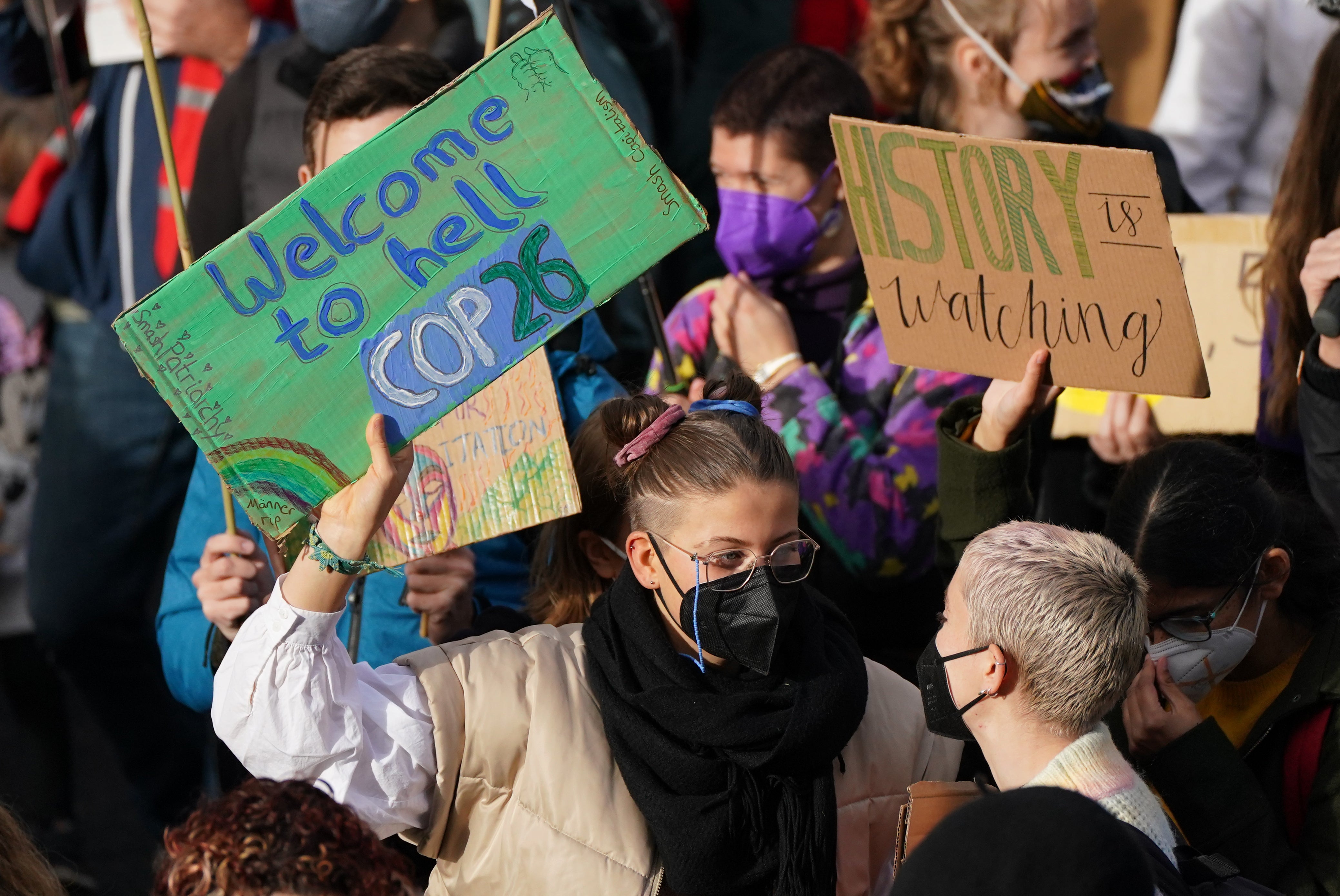Cop26 summit likely to have had ‘little impact’ on Covid cases in Scotland
Public Health Scotland published its final report looking at the impact the climate change conference had on the pandemic in Scotland.

Your support helps us to tell the story
From reproductive rights to climate change to Big Tech, The Independent is on the ground when the story is developing. Whether it's investigating the financials of Elon Musk's pro-Trump PAC or producing our latest documentary, 'The A Word', which shines a light on the American women fighting for reproductive rights, we know how important it is to parse out the facts from the messaging.
At such a critical moment in US history, we need reporters on the ground. Your donation allows us to keep sending journalists to speak to both sides of the story.
The Independent is trusted by Americans across the entire political spectrum. And unlike many other quality news outlets, we choose not to lock Americans out of our reporting and analysis with paywalls. We believe quality journalism should be available to everyone, paid for by those who can afford it.
Your support makes all the difference.The global Cop26 climate summit is likely to have had “little impact” on the spread of Covid-19 in Scotland, experts have said.
Public Health Scotland (PHS) was also clear there was “no evidence of any connection” between cases of the new Omicron variant and the summit – which was attended by leading politicians from across the globe, as well as tens of thousands of protesters.
A new report found that 353 people across Scotland who were infected with coronavirus reported attending an event at or were linked to the gathering – such as attending the summit itself, or taking part in workshops, protests or marches.
The study, which looked at the impact the climate change conference in Glasgow had on the pandemic in Scotland, found over the period of Cop26 from October 31 and November 13, around two in every 1,000 people affiliated to the event tested positive for the virus, either using a lateral flow device or a PCR test.
That compares to a survey of the overall Scottish population that estimated between 11 and 12 people out of every 1,000 were infected between November 6 and 13.
The report said that although the seven-day incidence rate of infection in Scotland began to increase during the period of the summit – going from 330 cases per 100,000 on November 1 to 389 cases per 100,000 on November 13 – this was “primarily driven” by rising cases amongst youngsters aged between five and 11 years old.
In the second week of the summit, case rates rose amongst adults aged between 20 and 49, but these “stabilised and started to decline in the two weeks after Cop26 alongside the rates amongst the younger age group”.
And while the summit took place in Glasgow, the report found that NHS Greater Glasgow and Clyde had the lowest seven-day incidence rate of coronavirus infections of all the mainland health boards for the period of the event.
The report said: “Data available to PHS from enhanced and routine Covid-19 surveillance does not indicate a direct Cop26 contribution to the increase in Covid-19 infections nationwide during the summit and there is no evidence of any connection between Omicron cases and Cop26.
“With infections falling in the two weeks following the end of the summit, it is likely that Cop26 has had little impact on Covid-19 epidemiology in Scotland.”